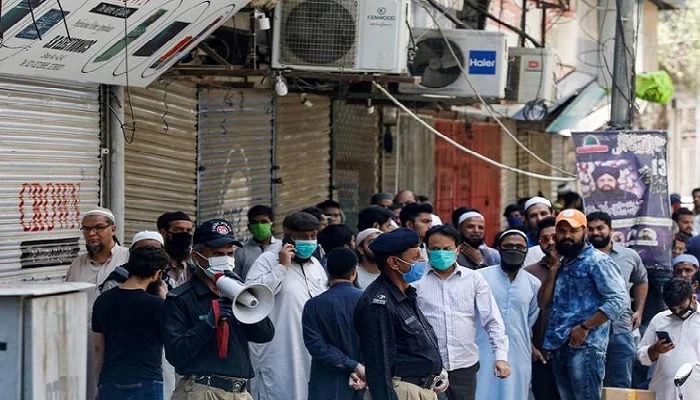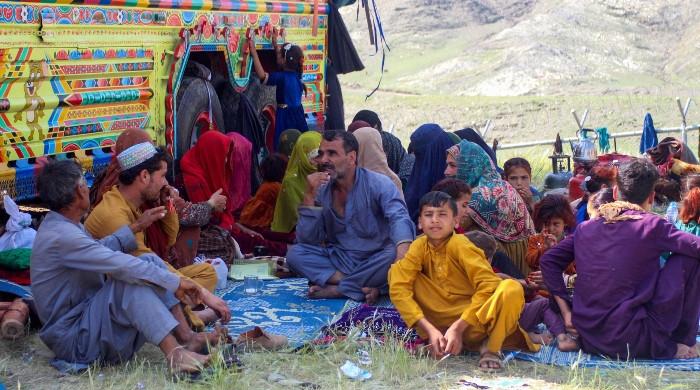Pakistan's COVID-19 positivity ratio exceeds 2% for first time since mid-October
Daily coronavirus infections cross 1,000-mark for first time since October 14, NCOC data shows
January 06, 2022

- Pakistan detects 1,085 new COVID-19 infections overnight, causing a 0.5% increase in positivity ratio in a single day.
- New cases push positivity ratio to 2.32%.
- Five patients succumb to virus in last 24 hours, NCOC data shows.
Pakistan's coronavirus positivity ratio exceeded 2% in a single day for the first time since October 14 last year, as 1,085 new infections were detected during the last 24 hours, official data for Thursday morning suggested.
On October 14, 2021, the positivity ratio stood at 2.03%. Daily infections have crossed the 1,000-mark for the first time since October 14.
As per the statistics issued by National Command and Operation Centre (NCOC), the new cases pushed the positivity rate to 2.32%, which is a 0.5% increase in Wednesday's ratio, which was 1.8%.
As many as five patients succumbed to the virus in the last 24 hours, while 636 patients are in critical condition.
The casualties took the nationwide death tally to 28,955, while 247 patients recuperated, placing the number of total recoveries at 1,257,847.
According to the NCOC, the total number of cases reported so far has reached 1,299,848.
'Don't take Omicron lightly'
Amid a sharp rise in the COVID-19 cases across Pakistan, SAPM on Health Dr Faisal Sultan warned people on Tuesday to not take Omicron “lightly” as hospitalisation will increase in the next one to two weeks.
The country’s top health official advised the public to follow the COVID-19 SOPs and get vaccinated at the earliest.
“It’s still a bit early to draw conclusions since it takes 1-2 weeks for hospitalisations to go up. Also, let us see how the virus behaves regarding virulence”, Dr Sultan said when asked as to why hospitalisations were not going up in Karachi despite an increase in the number of COVID-19 cases due to the spread of the Omicron variant.











